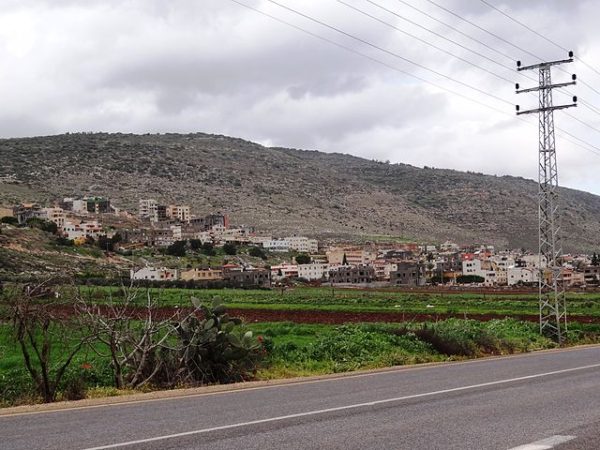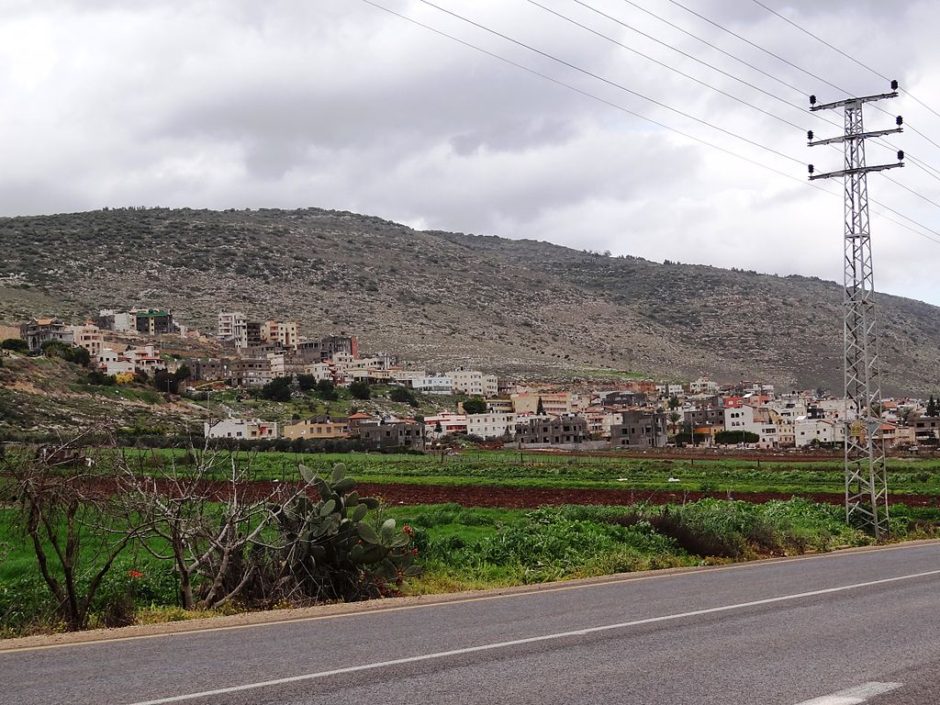It’s fair to say that Israel has massive security problems, even though it’s the strongest country in the Middle East militarily speaking.
Sixty eight years after its first prime minister, David Ben-Gurion, proclaimed statehood, Israel faces threats from Hamas, Hezbollah, Iran and the jihadist organization Islamic State. No longer is Israel threatened by conventional Arab armies, as it was until the 1973 Yom Kippur War.
Yet the biggest potential threat to Israel’s existence as a democratic Jewish state probably comes from within, from disaffected sectors of Israel’s Arab minority, which comprises about 20 percent of its total population of 8.5 million.
Israeli Arabs are the descendants of some 160,000 Palestinian Arabs who stayed in their homes as more than 400,000 of their fellow Palestinians fled or were forced to leave during the 1948 Arab-Israeli war.
For the first 18 years after the war, they were subjected to Israeli military rule, their movements monitored and restricted and their lands expropriated by the state. The Israeli government formally abolished military rule in 1966, but Israeli Arabs, though equal under the law, remained second-class citizens in terms of employment opportunities, availability of social services, education budgets and government allocations to municipalities.

Due to factors like religion, culture and language, the vast majority of Israel’s 1.7 million Muslim and Christian Arabs live in separate Arab towns and villages like Umm al-Fahm, Tayibe, Kfar Qasim and Kfar Manda. A much smaller number reside in mixed Arab-Jewish towns such as Haifa, Lod and Ramle.
There have been incremental improvements in their status in Israeli society, with the result that an Arab sits on the Supreme Court and Arabs are now members of the diplomatic service. In 2015, in a long overdue move, the Knesset passed a $1 billion five-year plan to encourage economic growth in the Arab sector.
But as Israel’s state comptroller, Yosef Shapira, recently observed in his annual report, the Arab community “suffers from ongoing discrimination.”
As he pointed out, Israeli Arabs are significantly underrepresented in major government-owned companies, and in some of these corporations, they’re completely absent from managerial positions.
Shapira wrote that plans to integrate Israeli Arabs into the general workforce are “broken, ineffective and deficient.”
This is a situation that breeds anger, resentment and alienation on the part of Israeli Arabs and requires fixing as soon as possible.
Although most Arab citizens are loyal to the state, they tend to identify as Palestinians and support the Palestinian cause, do not generally serve in the armed forces, almost unanimously reject the Zionist narrative and Zionist symbols, and invariably vote for Arab political parties.

Last year, they formed the Joint List, headed by Ayman Odeh. The Joint List, with 13 members in the 120-seat Knesset following the last general election, is now Israel’s third largest party. Its platform calls for complete equal rights between Arabs and Jews and tends to be at odds with Jewish parties over some key issues.
Three months ago, Hadash and Balad, two of the four Arab parties that comprise the Joint List, denounced Sunni Arab states that designated Hezbollah — Israel’s arch enemy — as a terrorist group, prompting Prime Minister Benjamin Netanyahu to ask, “Have you gone mad?”
More recently, Zouheir Bahloul, one of the very few Israeli Arab parliamentarians who’s a representative of a Jewish party, stirred controversy when he claimed that Palestinians from the West Bank who attack Israeli soldiers rather than civilians should not be considered terrorists.
Bahloul, a member of the Zionist Union, said: “What can a Palestinian, suffocating under the yoke of occupation for 49 years, do in order to regain his freedom? The soldiers are, for him, a symbol of the occupation.”
Zionist Union leader Isaac Herzog, in a Twitter post, declared he “rejects and strongly condemns his statements.”
In all probability, Bahloul’s view is shared by most Arabs in Israel. Unlike Israeli Jews, Israeli Arabs are overwhelmingly in favor of a two-state solution to resolve the Arab-Israeli conflict. Radicalized Arabs go further, supporting the creation of a binational state in place of Israel.

Still other Arabs are so alienated from Israel that they’ve turned to violence. During the first year of the second Palestinian uprising, an Israeli Arab named Mohammed Habeishi detonated his suicide vest in Nahariya’s train station, killing three Jews. Last January, Nashat Milhelm, an Israeli Arab, shot and killed three Jews in a rampage in central Tel Aviv. Last month, three Arab men from the Galilee inspired by Milhelm were charged with planning shooting and stabbing attacks against Jews.
Due to the perception among some Israeli Jews that Israeli Arabs are intrinsically disloyal, Avigdor Liberman, the leader of the Yisrael Beteinu Party and the recently appointed minister of defence, has recommended that Arabs living in areas abutting the West Bank should be stripped of their Israeli citizenship and transferred to a sovereign Palestinian entity.
Liberman’s “transfer” proposal is not regarded as implausible by many Israeli Jews. A survey conducted last winter by the Pew Research Center found that 48 percent of Jews endorse it. Forty six percent of Jews rejected the concept.
A Channel 2 survey released in April found that 49 percent of Israeli Jews do not want to live in the same apartment building as Arabs. Forty two percent of Jewish respondents disagreed.
A poll conducted by New Wave Research for the daily Hayom in April found that 48 percent of Jewish high school students in grades 11 and 12 oppose Arab representation in the Knesset. The remainder, 52 percent, said that Arabs should have representatives in parliament.
The results of these surveys, along with the phenomenon of Israeli Arab disaffection, points to a somber development already under way: the gap between Jews and Arabs in Israel is widening.
It’s a deep-seated, malignant problem that Israel should address with the utmost seriousness on every front as soon as possible.
Israel continues to be threatened by the Islamic fundamentalist regime in Iran, and in previous wars, Hamas and Hezbollah have fired rockets into Israel’s heartland. Looking ahead, Islamic State operatives may yet strike Israel.
These are serious threats that cannot be underestimated. But the potential internal threat that Israel may one day face from its disgruntled Arab citizens is ultimately just as grave and cannot be swept under the rug.
If conditions for Israeli Arabs do not improve satisfactorily in the future, they may demand changes that Jews probably would not accept. With a higher birthrate than Jews, Muslims and Christians could possibly constitute one-third of Israel’s population in another generation or two, say demographers. Under such circumstances, they’d be entitled to greater representation in the Knesset, giving them the powers to modify or alter the system for their own benefit.
If Jews summarily rebuffed their demands, Israel would be exposed as a non-democratic and racist state, with all its ramifications. Israeli Arabs could then take their case to the international court of opinion, or worse still, rise up in mass revolt and bring Israel to the edge of anarchy or even civil war.
This is admittedly a grim scenario, but Israeli Jews can only dismiss it at their peril.
